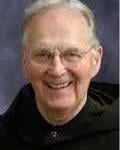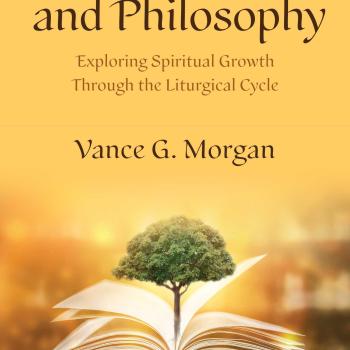The central theme of my ethics class last fall was human dignity. Through short stories, excerpts from novels and plays, and philosophical articles we explored the reasons why we believe that human beings, simply by virtue of being human beings, are morally set apart from everything else. This is a high stakes issue, since our commitment to universal human rights and equal treatment of all human beings, despite our obvious differences, is built on our claim that a human being’s value is intrinsic, rooted in what we are rather than what we do.  Human dignity is not something we earn, in other words. It is something we possess simply by virtue of what we are.
Human dignity is not something we earn, in other words. It is something we possess simply by virtue of what we are.
Most of us have been taught to believe this since our youth, but as I tell my students in every course I teach on the first day of class, a liberally educated person has to earn the right to her or his beliefs and opinions. Early in the semester, I proposed the following definition to my students: A human being is a physical body plus something more. Just about everyone resonated positively with this definition, agreeing that while being a physical thing connects us to everything else that exists, it is the “something more” that makes us special. If there is such a thing as “human dignity,” they thought, it is this “something more” that confers it. But what is this “something more”?
I teach at a Catholic college, so it’s not surprising that the go-to answer among my students was the “soul.” But upon further investigation, it was clear that no one knew what the “soul” is—other than the “something more” that makes all of us different than everything else. A small group exercise focused on generating a definition of “soul”; this exercise produced a range of possibilities, often including characteristics such as “immaterial” and “immortal.” Subsequent discussion indicated that these characteristics were probably reflections of what my students had been taught to believe rather than anything with philosophically coherent content. Try to come up with a explanation of what the oxymoronic phrase “immaterial thing,” a distinct entity with no distinguishing characteristics other than what it is not, even means and you’ll see the problem.
All of the definitions indicated that the “soul” is what is responsible for our abilities to think, emote, dream, choose, create, imagine, love—all of the capacities that we intuitively believe cannot be reduced to the activity of physical stuff, no matter how complicated. In other words, “soul” is a shorthand umbrella term that covers all of the natural human capacities that we consider to be uniquely definitive of what it means to be human rather than something else. This places the discussion on a non-theological level. Are the capabilities that we consider to be definitionally human also exclusively human? If the answer is yes, how do we account for these capabilities?
The final assignment of the semester, a final paper intended to be an opportunity for students to apply the many philosophical tools we had identified and learned to use over the course of the semester, was Nobel prize-winning novelist Kazuo Ishiguro’s 2005 novel Never Let Me Go. Ishiguro’s work, among other things, is an extended exploration of the very questions my students and I had been grappling with all semester. Is there a soul, something, anything that’s beyond the reach of technology—or are we simply a complicated conglomeration of matter that, in time, will be capable of duplication and replication?
Never Let Me Go is set in a dystopian future in which clones are produced for the sole purpose of being organ donors for “normal” human beings. I vividly remember the first time I read this novel years ago. Given Ishiguro’s mastery, it is not clear why we are spending time with these students at what, on the surface, appears to be a typical British boarding school. But there is clearly something different about these students. As it turns out, Hailsham—the school at the center of the narrative—was created for the raising and education of clones who, when they come to adulthood, will donate organs until their demise.
One of the central activities at Hailsham is art classes, which take on an elevated importance when we learn, toward the end of the novel, that the student artwork is used by the teachers and authorities at Hailsham in an attempt to prove to an intentionally uncaring populace that these clones are more “human” than one might want to believe an artificially created source of life-saving and life-extending organ transplants might be. As one of the “guardians” at Hailsham tells one of the clones late in the novel, “we were trying to prove that you were human, that you had souls.” By demonstrating that the clones had artistic abilities and creativity that we expect of young adolescent human beings, the guardians sought to demonstrate that despite their “artificial” origin, the clones were deserving of the respect we reserve for creatures with dignity and intrinsic value.
I just finished Ishiguro’s most recent (2021) novel, Klara and the Sun, a few weeks ago. There is no author who is better at observing human beings from the perspective of someone who is almost, but not exactly, human. This time the perspective is that of an AF, an “Artificial Friend” in another dystopian future that is too-close-for-comfort. I won’t spoil the story—suffice it to say that the narrator is Klara, an AF who is purchased to be the companion for Josie, an early teen with an unidentified serious, perhaps terminal, illness. Lurking behind the scenes is an important but uncomfortable question. Is there anything about a human being that cannot be precisely duplicated by technology? Does each of us have an ineffable “something” that cannot be captured even with the most advanced science?
In a conversation late in the novel, an important character in the story suggests that our insistence that there is something ineffable about human beings is a remnant of an earlier age.
You’re like me. We’re both of us sentimental. We can’t help it. Our generation still carries the old feelings. A part of us refuses to let go. The part that wants to keep believing there’s something unreachable inside each of us. Something that’s unique and won’t transfer. But there’s nothing like that, we know that now. . . . There’s nothing there.
There is plenty to be argued in favor of this perspective. If we are nothing but complicated conglomerations of matter, then in principle everything about us can be duplicated by technology.
But we seem hard wired to resist believing that this could be true. In a subsequent conversation, another character worries that, despite our resistance, it very well might be.
I think I hate [him] because deep down I suspect he may be right. That what he claims is true. That science has now proved beyond doubt there’s nothing so unique about [us], nothing there our modern tools can’t excavate, copy, transfer. That people have been living with one another all this time, centuries, loving and hating each other, and all on a mistaken premise. A kind of superstition we kept going while we didn’t know better.
Later in the conversation, the most important question comes to the fore.
Let me ask you this. Do you believe in the human heart? I don’t mean simply the organ, obviously. I’m speaking in the poetic sense. The human heart. Do you think there is such a thing? Something that makes each of us special and individual? And if we just suppose that there is. Then don’t you think, in order to truly learn [another person], you’d have to learn not just her mannerisms but what’s deeply inside her? Wouldn’t you have to learn her heart?
I appreciate Ishiguro’s use of “heart” rather than “soul” here. It avoids unnecessary religious connotations and baggage. Does each human being carry at her or his core something ineffable and irreducible, something unique that cannot be replicated even by any future technology? Is this ineffable something so important that it overrides all of the differences that divide us? We all know what we want the answer to be. It is incumbent on all of us to act as if we believe the answer to be an undeniable “yes.” That answer, taken seriously, would change everything.













